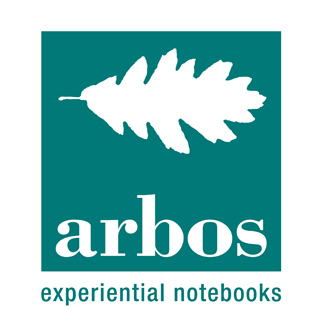

Arbos Srl Società Benefit

Veneto, Italy
June 2019
Paper & paper products
Manufacturing
Italy
Since its inception in 1988, Arbos has always set itself a mission to produce high-quality stationery using exclusively recycled materials: recycled paper, recycled leather (Ricuoio) and recycled fabric. Arbos transforms these "poor" materials into everyday products in close and constant partnership with the world of design and art. Just as the Italians are insurmountable in other fields -like fashion and food - for its paper products Arbos wants to express the “Made in Italy” quality: creativity, design, art and the great know-how of our craftsmanship. At the same time, the eco-sustainable materials mean that anyone who purchases products by Arbos knows that the environment comes first and foremost. An Arbos notebook or journal offers the right stimulus for writing or drawing; the ideal place for collecting ideas and feelings. And to keep them. This is why Arbos says that their products are stories: they speak of Respect for the environment, Respect for man, and Research into beauty. It is our "3R" philosophy.
Overall B Impact Score
Governance 16.7
Governance evaluates a company's overall mission, engagement around its social/environmental impact, ethics, and transparency. This section also evaluates the ability of a company to protect their mission and formally consider stakeholders in decision making through their corporate structure (e.g. benefit corporation) or corporate governing documents.
What is this? A company with an Impact Business Model is intentionally designed to create a specific positive outcome for one of its stakeholders - such as workers, community, environment, or customers.
Workers 23.1
Workers evaluates a company’s contributions to its employees’ financial security, health & safety, wellness, career development, and engagement & satisfaction. In addition, this section recognizes business models designed to benefit workers, such as companies that are at least 40% owned by non-executive employees and those that have workforce development programs to support individuals with barriers to employment.
Community 17.4
Community evaluates a company’s engagement with and impact on the communities in which it operates, hires from, and sources from. Topics include diversity, equity & inclusion, economic impact, civic engagement, charitable giving, and supply chain management. In addition, this section recognizes business models that are designed to address specific community-oriented problems, such as poverty alleviation through fair trade sourcing or distribution via microenterprises, producer cooperative models, locally focused economic development, and formal charitable giving commitments.
Environment 33.5
Environment evaluates a company’s overall environmental management practices as well as its impact on the air, climate, water, land, and biodiversity. This includes the direct impact of a company’s operations and, when applicable its supply chain and distribution channels. This section also recognizes companies with environmentally innovative production processes and those that sell products or services that have a positive environmental impact. Some examples might include products and services that create renewable energy, reduce consumption or waste, conserve land or wildlife, provide less toxic alternatives to the market, or educate people about environmental problems.
What is this? A company with an Impact Business Model is intentionally designed to create a specific positive outcome for one of its stakeholders - such as workers, community, environment, or customers.
Customers 2.0
Customers evaluates a company’s stewardship of its customers through the quality of its products and services, ethical marketing, data privacy and security, and feedback channels. In addition, this section recognizes products or services that are designed to address a particular social problem for or through its customers, such as health or educational products, arts & media products, serving underserved customers/clients, and services that improve the social impact of other businesses or organizations.